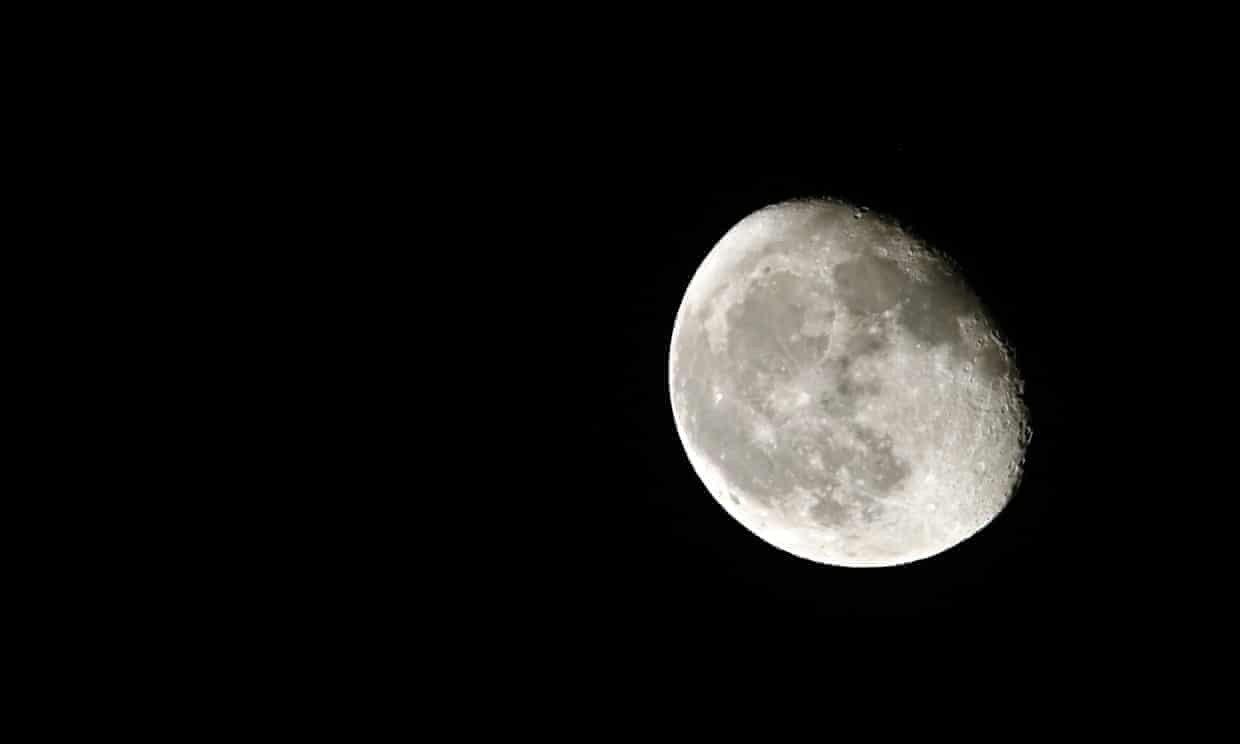
Nasa
Nasa is looking for private companies to help mine the moon
The agency announced it is buying lunar soil from a commercial provider as part of a technology development program
by Edward HelmoreNasa has announced it is looking for private companies to go to the moon and collect dust and rocks from the surface and bring them back to Earth.
The American space agency would then buy the moon samples in amounts between 50 to 500 grams for between $15,000 to $25,000.
The Nasa administrator, Jim Bridenstine, announced on Thursday that the moon material collection would become part of a technology development program that would help astronauts “live off the land” for crewed missions in the future to the moon or elsewhere.
Bridenstine wrote that the agency “is buying lunar soil from a commercial provider. It’s time to establish the regulatory certainty to extract and trade space resources.”
The collection is part of Nasa’s Artemis lunar exploration program established last year to land US astronauts, including the first woman and the next man, on the moon by 2024.
The agency has indicated that missions further afield, to Mars for instance, will require the use of locally mined resources.
“We will use what we learn on and around the moon to take the next giant leap – sending astronauts to Mars,” Bridenstine wrote.
In a blogpost, Bridenstine said the effort would comply with the Outer Space Treaty of 1967, which says that no country may lay sovereign claim to the moon or other celestial bodies in much the same way that the Antarctic continent is off-limits for territorial conquest.
In May, Nasa unveiled a legal framework that would govern the behavior of countries and companies in space and on the moon. The legal framework, known as the Artemis Accords, include the creation of “safety zones” around sites where mining and exploration would take place on the lunar surface.
Nasa’s top administrator also told a forum held by the Secure World Foundation that the policies that will govern mining from celestial bodies would be much the same as those that currently exist for the world’s oceans.
“We do believe we can extract and utilize the resources of the moon, just as we can extract and utilize tuna from the ocean,” he said, without referring to overfishing and pollution that is rapidly destroying fish stocks in many regions.
Unlike fisheries, however, participating celestial mining companies would be required to provide imagery of the material and the location from which it was recovered.
Nasa already has a separate program to contract companies to fly science experiments and cargo to the moon ahead of a human landing. Those include Astrobotic, SpaceX, Blue Origin, Sierra Nevada Corp and Lockheed Martin.
Bridenstine said he anticipated some of those might also be interested in lunar mining.
Casey Dreier, chief advocate & senior space policy adviser at the Planetary Society, wrote on Twitter that the importance of Nasa’s announcement is “not so much the financial incentive (which is tiny) but in establishing the legal precedent that private companies can collect and sell celestial materials (with the explicit blessing of NASA/U.S. gov)”.
• This article was amended on 11 September 2020. A reference to “manned missions” should have been “crewed” missions in line with our gender-neutral approach and Nasa’s own terminology.